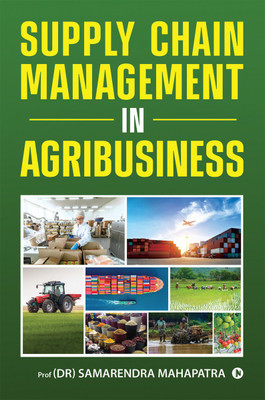Supply Chain Management in Agribusiness(Paperback, Prof (Dr) Samarendra Mahapatra)
Quick Overview
Product Price Comparison
Supply Chain is the core business process in an organization that create and deliver a product or service, from concept through development and manufacturing or conversion, and into a market for consumption. Supply chain objectives include cost reduction, value addition and reducing response time in profit-based organisations in contrast to the non-profit based where issues like quality of life, equal opportunity, literacy rate, etc. are the priority area. In the international market, it helps business organisations to provide customer value, coordination, information sharing to stakeholders and societal value in the educational supply chain with feasible relationships internally as well as externally. Better outsourcing, enhanced profits, customer satisfaction, quality outcomes, competitive pressure, e-commerce application, globalisation, efficient operation and increasing complicity factors require supply chain management. Transparency is recognised as the key principle of public procurement policy but governments do not make public procurement data public. Public procurement laws may say what information to publish but not how to publish it. Governments may have new procurement laws and e-procurement systems, but they do not have accessible public procurement data and that is why they do not make it public. E-procurement systems are difficult to use and require a lot of user training. E-procurement reforms are frequently unsuccessful and challenging.


